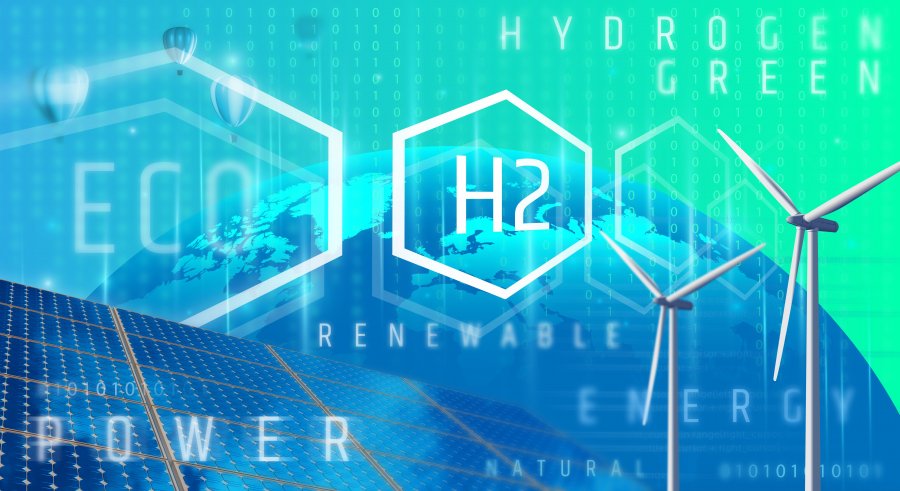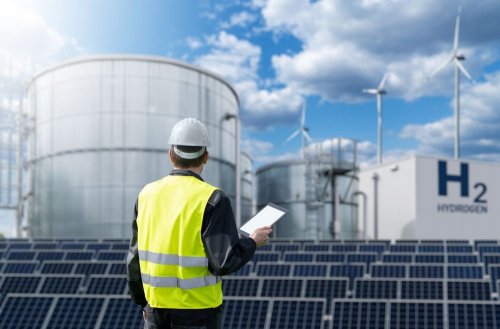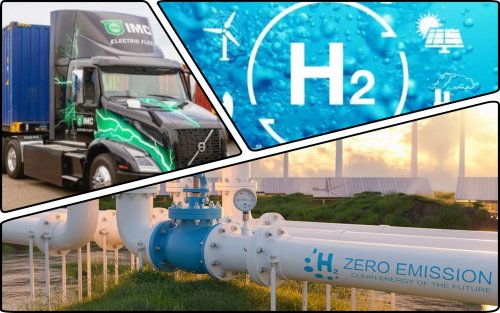The European Commission will introduce carbon contracts on subsidies for the difference fd to support the use of green hydrogen by industry and specific funding for REPowerEU under the Innovation Fund.
Profits from emissions trading will be used to support the transition from Russia's dependence on fossil fuels, according to Recharge NVS.
Under the CCfD, end-users will receive a guaranteed amount from governments for avoiding CO2 emissions, from savings from non-payment of carbon prices in the ETS, and from subsidies for achieving the "performance price" agreed in the CCfD. Thus, the amount actually paid by governments will depend on fluctuations in the carbon price in the EUA, and if it exceeds the cost of execution, end users will actually reimburse the government.
The UK is to introduce a different scheme for contracts for the difference for green hydrogen in 2022, which will offer a subsidy that represents the difference between the "performance price", which reflects the cost of hydrogen production, and the reference price, which reflects the market value of hydrogen.
In essence, this will allow green hydrogen to be available on the market at the same price as gray hydrogen made from attenuated methane. However, some analysts, including BloombergNEF and Rystad Energy, believe that green hydrogen will be cheaper to produce in Europe than gray or blue H2 due to high natural gas prices.
The article noted that the EU does not plan a subsidy for blue hydrogen.
The new REPowerEU plan sets a target of producing ten million tonnes of green hydrogen in the EU by 2030, and another ten million tonnes will be imported. A total of 20 million tons require about 600 GW of new wind and solar energy and 200 GW of electrolyzers.
The EC has stated that it will consider a joint procurement mechanism for the purchase of renewable H2 on a large scale at a low price.
"Hydrogen imports will be facilitated by a new special workflow under the EU's Energy Platform, which is to launch the European Global Hydrogen Fund and support the Green Hydrogen Partnership, which will launch a global market for renewable hydrogen," the statement said.
Other measures to increase domestic hydrogen production include swift decisions on state aid for IPCEI (important projects of common European interest), for which the full evaluation will be completed by summer, and by increasing Horizon Europe's investment in Hydrogen Joint Company (€ 200 million). to double the number of hydrogen industrial centers.
The EC is committed to finalizing the hydrogen regulatory framework and is publishing a draft law to identify and stimulate the production and development of the renewable hydrogen market in Europe.
"To speed up the hydrogen market, co-legislators must agree on increasing sub-targets for individual sectors. The Commission will also publish two Delegated Acts on the definition and production of renewable hydrogen, so that production leads to pure decarbonisation," the statement said.
The Commission will also support the development of three main hydrogen import corridors, including through the Mediterranean, the North Sea and, as soon as conditions allow, from Ukraine. It is also planned to speed up work with industry on technical standards for hydrogen and speed up permitting procedures for hydrogen infrastructure.
In addition, funding for hydrogen transportation systems will be increased.
The Commission proposes steps to develop special hydrogen infrastructure on the way to the European hydrogen highway, including electrolyzers for hydrogen production, internal pipelines and storage in the EU.
Financial support will be provided by unlocking new funding options for TEN-E renewable hydrogen projects and mobilizing EU funding under the Connecting Europe Facility, the Cohesion Policy, the Common Agricultural Policy and the Reconstruction and Sustainability Fund.
Existing renewable energy projects will not allow REPowerEU to be used for green hydrogen production on an "additionality" basis in exporting countries.
To avoid the risk that investment in renewable energy may be diverted from the energy transition in partner countries to hydrogen production as an export commodity, strict standards will ensure that hydrogen can only be imported into the EU from additional RES.
We will remind, The United States and the European Commission have released joint statement on European energy security.
As EcoPoliticа previously reported, the EU must ensure energy supply and accelerate hydrogen infrastructure.




